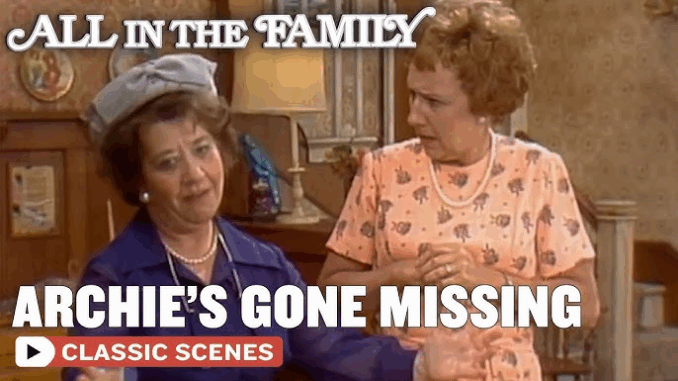
A Sitcom That Redefined Television
When All in the Family premiered on January 12, 1971, American audiences weren’t prepared for what they were about to witness. Created by Norman Lear, this sitcom didn’t just entertain — it confronted. Based on the British series Till Death Us Do Part, All in the Family broke new ground, daring to discuss race, politics, war, and sexuality in a way that had never been done on network TV.
Meet Archie Bunker: Flawed, Loud, Unforgettable
The heart of the show was Archie Bunker, a blue-collar conservative played to perfection by Carroll O’Connor. Archie was bigoted, stubborn, and unapologetically traditional — yet somehow likable. He lived in Queens, New York, with his kind-hearted wife Edith (Jean Stapleton), his liberal daughter Gloria (Sally Struthers), and her outspoken husband Michael “Meathead” Stivic (Rob Reiner).
Their living room became a warzone of generational and ideological conflict — reflecting a deeply divided America during the early 1970s.
Breaking Taboos, One Episode at a Time
All in the Family made history for being the first U.S. sitcom to feature a toilet flushing on screen, but that was just the beginning. The show boldly tackled issues such as:
-
Racism and bigotry
-
Women’s rights and feminism
-
The Vietnam War
-
Homosexuality
-
Rape and sexual assault
-
Economic inequality
These were not passing mentions — they were central to the storylines, treated with both humor and seriousness.
Controversial and Critically Acclaimed
While some viewers were shocked and even offended by the show’s blunt dialogue, most recognized its brilliance. By 1972, it had become the number one show in America, maintaining that spot for five consecutive years.
It won numerous Emmy Awards, including four for Outstanding Comedy Series, and inspired a universe of spin-offs like:
-
Maude
-
The Jeffersons
-
Good Times
-
Archie Bunker’s Place
Norman Lear’s Legacy
Lear’s genius was in using laughter as a delivery mechanism for truth. “If you can get people to laugh,” he famously said, “while their mouths are open, you can slip in a little food for thought.”
That approach paved the way for socially conscious shows that followed — from Roseanne to Black-ish and Modern Family.
Why It Still Matters Today
Even in today’s politically polarized world, All in the Family remains deeply relevant. The conversations Archie and his family had are still happening — in living rooms, on social media, and in the halls of power.
What began as a half-hour sitcom became a cultural phenomenon. It didn’t just reflect society — it challenged it. And it proved that television could be more than escapism; it could be a catalyst for change.
